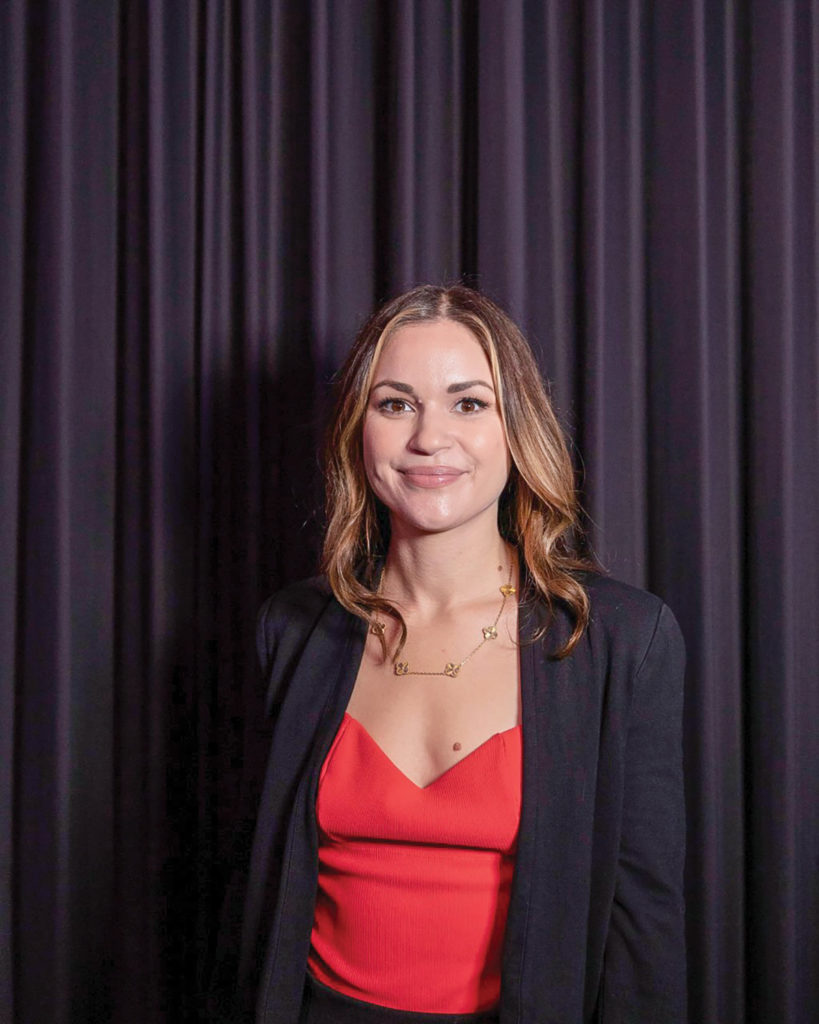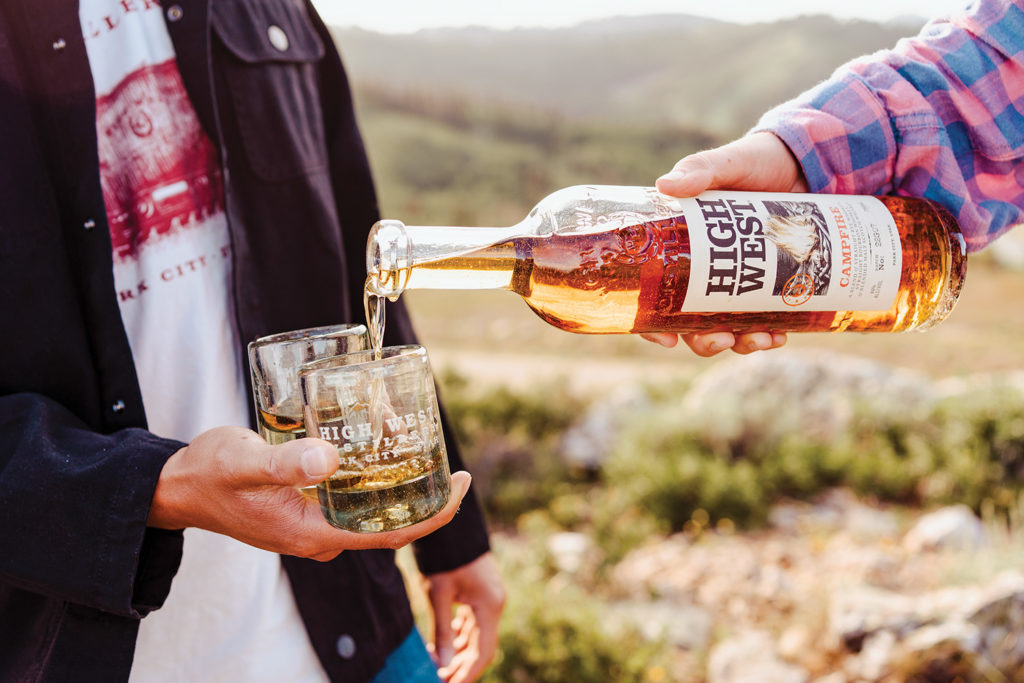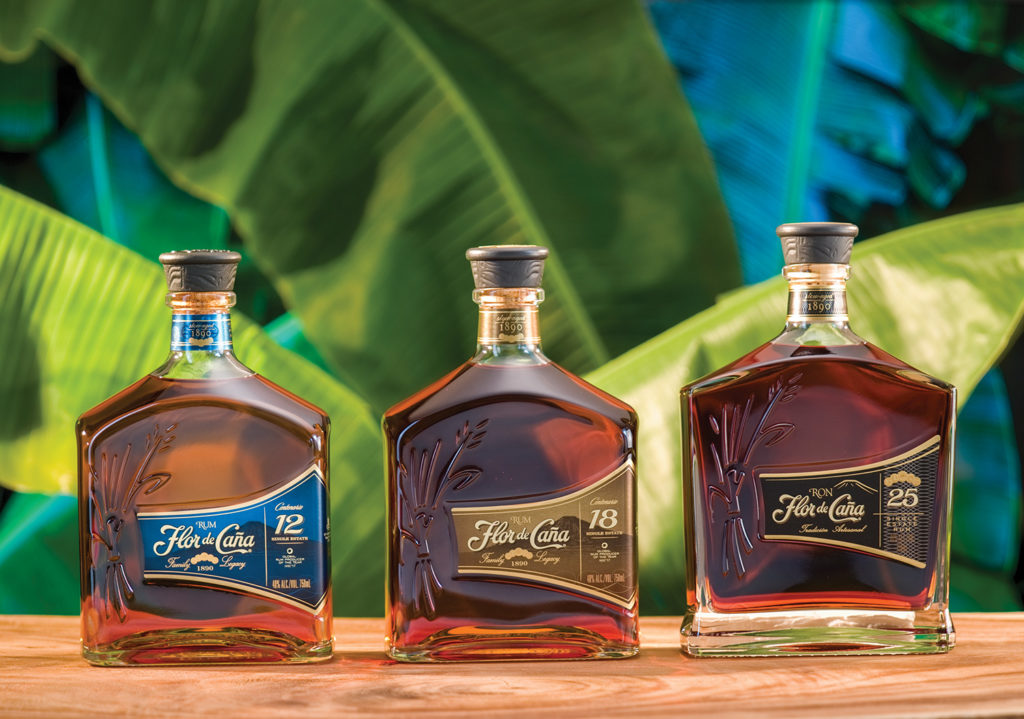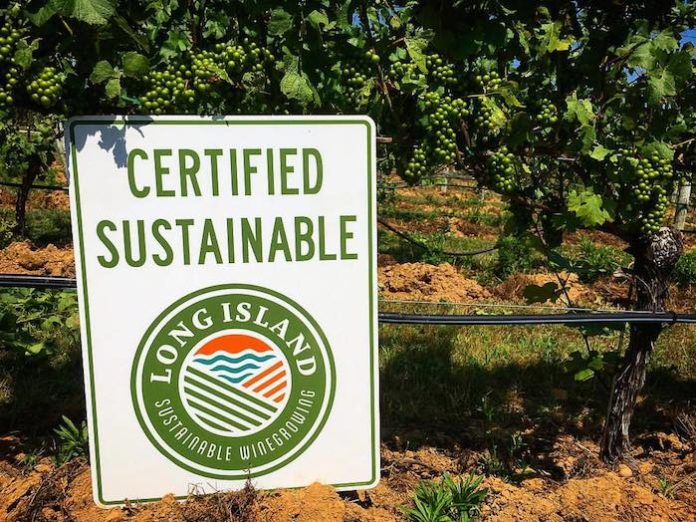Sustainability has been on the rise in consumer consciousness for the past decade, as an increasing awareness of climate change and its consequences surfaces in the mainstream. With a spike in natural disasters and growing concerns over the long-term effects of fossil fuels and other emissions, consumers — especially younger people — have made sustainability a key issue.
The alcohol industry is frequently in the spotlight when it comes to environmental, social, and governance (ESG) concerns. While other sectors may contribute more to global emissions, consumers have been holding businesses to higher standards of ethical, sustainable and inclusive practices.
A Greener Future Through Sustainability
Why should sustainability be important to consumers and companies alike? “Because we’re people,” says Aimy Steadman, founder/chief operating officer of BeatBox Beverages. “Ultimately this is something that affects every single person and every part of the economy. Food and beverage production is one of the biggest industries that affects our planet, so sustainability absolutely is the responsibility of executives and leaders in beverage companies.”
BeatBox is dedicated to exemplifying their values. After partnering with CarbonBetter, a climate and sustainability consulting firm, the company released their inaugural sustainability report, which detailed the implementation of their environmental management system (EMS) to track environmental progress, actions, and compliance and facilitate continuous improvement of sustainability efforts.
BeatBox adopted a formal environmental policy as part of this system, committing to reducing environmental impacts across the company. This included small efforts — such as prioritizing remote work for staff, to cut down on potential emissions — and larger initiatives, like working with a co-packer that uses treated wastewater on agricultural fields and gardens to reduce stress on the local aquifer and forming the Carton Recycling Action Group through a partnership with the Naturally Network.
The company even uses a byproduct of orange juice production as a key ingredient to prevent it from being diverted as a waste stream.
“Our company was really started to create a product for the next generation of drinkers,” says Steadman. “For us, that means not only creating a product that tastes great and is relevant in social media marketing, but also a company that embodies the values of our generation. As a founder, I’ve been anxious about climate change since I was a teenager. When I became in charge of a company that makes stuff and ships things all over the country, sustainability was something very top of mind for me. You want to leave the world a better place than you started with.”

BeatBox’s biggest priority as a company now is to be carbon efficient, Steadman continues. “While we care about recycling and waste, carbon and the carbon crisis is what we think is the most time-sensitive issue. We’ve done things with our supply chain, including choosing carton packaging. Carton packaging is lightweight which means you can fit more of them on each truck, reducing weight and increasing efficiency.”
BeatBox addresses waste via a plastic neutral offset. “So, as much plastic as we put into the world through caps and liners, as well as all the plastic we use as a company every quarter,” Steadman says, “we pay for the same weight of that plastic we put into the world to be removed from nature in places like India, that don’t have good access to recycling.”
BeatBox is spearheading eco-conscious efforts, but it remains largely behind the scenes. The company keeps most of the work away from marketing and brand messaging.
“I want my customers to enjoy the music festival they’re at, or the party they’re at. I don’t think, as a society, we should be putting the burden of environmental responsibility on the consumers. It’s all of us as supply chain owners and founders and executives that really control what choices consumers have. We don’t want to overmarket what we’re doing here either; it comes across as really disingenuous. A lot of the stuff we do, you won’t find on our packaging or our social media. At the end of the day, being eco-friendly shouldn’t be a marketing point — it should be the standard.”
Keeping the West Wild
The industry has a fair bit to go before eco-conscious is the standard, but many companies, including craft distilleries, are pushing to make sustainable practices the norm. High West Distillery in Park City, UT, is highly involved in the community.
“High West doesn’t exist without sustainability as part of our ethos,” says Daniel Schear, general manager. “Making great whiskey depends on having great grains and great water. Welcoming people to our home in Park City depends on a beautiful and safe natural environment. And for lots of people, it depends on snow!”
The company has witnessed firsthand how the West has been impacted by an increasing number of wildfires, continually changing climate, severe droughts, drier forests and reduced snowpack. “No snow, no water, no beautiful mountains, no High West.”
Cognizant of this fact, the distillery has enacted multiple eco-conscious practices to help offset the pollution and waste that results from the distilling process. “Grain used in whiskey distilled on site is sourced from producers within a day’s drive to reduce freight miles,” Schear says.
All of the electricity used across all High West sites is offset by renewable energy credits, he adds. Spent grain is sent to an anaerobic digestor, producing methane gas to power the Salt Lake City electrical grid, and chilled glycol cools the still instead of water, reducing water consumption.

Funding has also been a huge focus for the distillery, beyond its own sustainable practices. “High West has donated more than $1 million to nonprofits since our founding, with most funds benefiting organizations based throughout the West,” explains Schear.
“More than $700,000 of that specifically has benefited the American Prairie, as High West took note of the impact of climate change and homed in on its commitment to protecting our home in the West. We wanted to partner with organizations who share High West’s passion for the West and whose conservation efforts fall into three focus areas: the fight against wildfires, protecting winters and wildland preservation.”
The donations go towards three charities that align well with High West’s mission. For instance, “The Wildland Firefighter Foundation is dedicated to helping the families of firefighters killed in the line of duty and to assisting injured firefighters and their families,” Schear says. “They honor and acknowledge the past, present and future members of the wildland firefighting community and partner with private and interagency organizations to bring recognition to wildland firefighters.
Protect Our Winters is a community of athletes, scientists, creatives, and business leaders advancing non-partisan policies to protect our outdoor playgrounds from climate change, he notes. And American Prairie is creating the largest nature reserve in the contiguous U.S.
“American Prairie grows over time by purchasing critical habitat that connects a vast network of existing public lands, creating a region that is managed thoughtfully and collaboratively with state and federal agencies for wildlife conservation and public access.”
Schear understands that these donations aren’t possible without customers who believe in what the distillery is doing. “Brands that cut corners and choose the path of least resistance can often make a cheaper, more profitable product.”
When consumers take a stand and say they are willing to vote with their dollars and then vote for the brands that don’t cut corners, “it matters,” he says. It enables brands that build sustainability into their strategy to grow and thrive.
“High West in our beautiful home in Park City and so many other businesses like ours have gone from waging an uphill battle against brands who cut corners to now competing on a level playing field, in no small part thanks to consumers choosing to make it that way.”
Sustainability may matter more to High West than others, due to its proximity to nature — and thus, natural disasters. Away from the insulating effects of a city, the distillery experiences firsthand what is at stake when it comes to eco responsibility.
Whether you’re making Tennessee Whiskey or Jalisco Tequila, Schear says, “our products need amazing agricultural inputs and clean water. And you don’t grow great rye under smoggy skies, and you sure as hell can’t distill a damn thing if we as a global community don’t take care of our water.”
A Human-focused Approach
Sustainability isn’t just about the environment. According to Luis Baez, global brand ambassador for Flor de Caña rum from Nicaragua, it’s much larger than that.
“We don’t only consider sustainability from an eco-conscious standpoint. We look at sustainability across three pillars — obviously, being eco-friendly, but also engaging correctly with the community and treating our collaborators the right,” Baez says.
“When you think of why sustainability is a part of our ethos, and why it’s such an integral part of what we do and how we do thing, for one, it’s the right thing to do.” By focusing on the human element, Flor de Caña inspires generational loyalty in its employees. “From our very beginnings, the leaders of the company wanted to make sure our employees were taking care of,” Baez says.

For one thing, they started providing free health services and free school for employees and their families. “It’s interesting to see how many workers are second and third generation within the company,” he notes.
“It comes from opening doors and educating them and giving them that peace of mind — that education and health will be taken care of — allows our workers to feel a lot more comfortable.”
If you talk to anyone who works at Flor de Caña, Baez continues, “they’ll tell you it’s like a big family. That’s not a lie; it really is like a big family. I think that’s all part of sustainability as well.”
Certified Success
The success of Flor de Caña is based on its holistic approach to sustainable practices. The distillery is both fair trade and carbon neutral certified.
Why do companies apply for a certification? “It’s for validation, to prove to people that your company is actually doing what it says it is,” Baez says. “The process to get certified was made up of a million different things you had to send; you have a lot of visits to the distillery to check your processes. It takes a while.”
The good thing for Flor de Caña was that the company had started down that path a long time ago.
“We were already distilling with 100% renewable energy; we were already capturing all the CO2 emissions in the fermentation process; we were already planting 50,000 trees a year,” notes Baez. “Looking at all those things, the certification came second, because we were already down that path.”
Sustainability needs to be important to everybody, Baez concludes, “and the alcohol industry shouldn’t be left out of it. Everyone needs to get on this trend.”
People can find big and small ways to make a difference, “and that’s a positive impact on our industry.”
Jamie Stafford is the editorial associate at Beverage Dynamics. Reach her at jstafford@epgacceleration.com. Read her recent piece, 7 Alcohol Trends in 2022-23.




